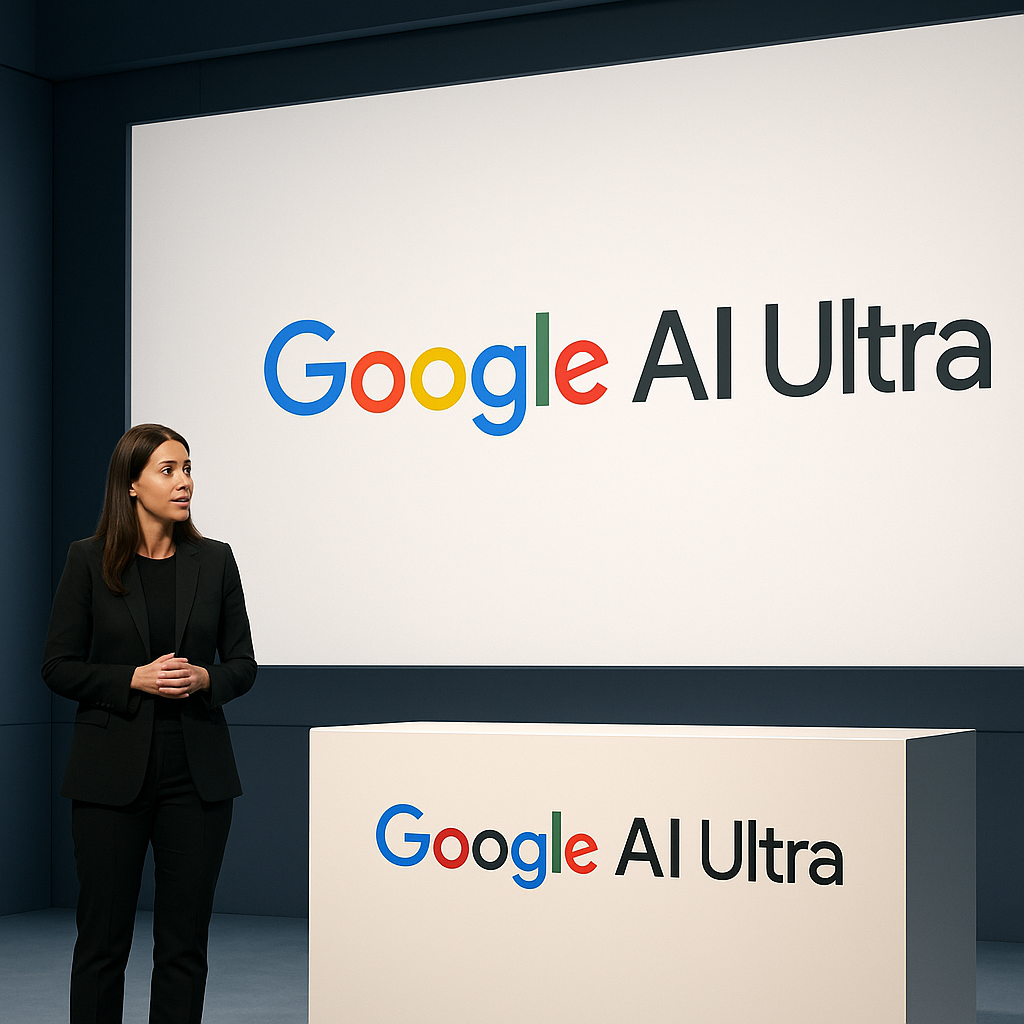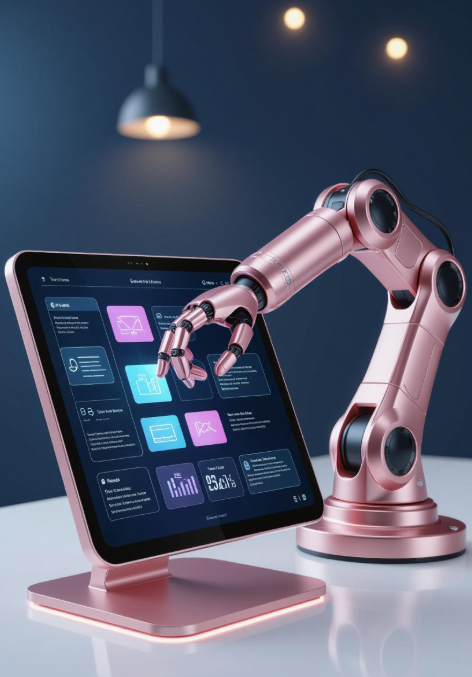Remember when we thought autocomplete in our code editors was revolutionary? Well, buckle up, because what’s happening in software development right now makes that look like ancient history. AI coding assistants have crashed onto the scene, and they’re not just changing how we write code—they’re fundamentally reshaping what it means to be a developer in 2025.
I’ve been coding for over a decade, and I’ll be honest: I was skeptical at first. Another tool promising to make my life easier? Sure. But after spending the past year working alongside these AI assistants, I can tell you without a doubt—this is the real deal. And if you’re not paying attention, you’re already falling behind.
The Revolution Nobody Saw Coming (Except Everyone Should Have)
Let’s rewind for a second. Five years ago, if someone told you that an AI could write entire functions, debug complex issues, and even explain legacy code that makes senior developers cry, you’d probably laugh them out of the room. Today? That’s just Tuesday morning.
AI coding assistants like GitHub Copilot, Amazon CodeWhisperer, and newer players like Claude Code have moved from “interesting experiment” to “essential tool” faster than any technology I’ve witnessed. We’re talking about tools that can understand context, suggest entire blocks of code, catch bugs before they happen, and even refactor your messy code into something you’d be proud to show in a code review.
But here’s what nobody’s really talking about: this isn’t just about writing code faster. It’s about fundamentally changing the relationship between developers and their craft.
What These AI Assistants Actually Do (And Don’t Do)
Let me clear something up right away: AI coding assistants aren’t going to replace developers. That’s the headline everyone loves to fear-monger about, but it’s missing the point entirely. What they’re doing is way more interesting.
Think of it like this: before calculators, mathematicians spent hours doing arithmetic. Did calculators make mathematicians obsolete? Of course not. They freed them up to tackle bigger, more complex problems. AI coding assistants are doing the same thing for developers.
These tools excel at the repetitive stuff—the boilerplate code, the standard implementations, the “I’ve written this pattern a thousand times” scenarios. They’re incredibly good at pattern recognition because they’ve been trained on millions of lines of code from public repositories. When you start typing a function, they can often predict not just the next line, but the entire implementation based on your function name and parameters.
But here’s where it gets really powerful: they’re also amazing at explaining code. You know that nightmare scenario where you inherit a codebase with zero documentation and the original developer left two years ago? Feed that code to an AI assistant, and it can break down what’s happening in plain English. It’s like having a patient senior developer sitting next to you, except they’re available 24/7 and never get annoyed by your questions.
The Real-World Impact: Stories from the Trenches
I talked to Sarah, a full-stack developer at a mid-sized startup, who shared something that really stuck with me. “I was spending about 30% of my time on Stack Overflow and documentation sites,” she said. “Now? Maybe 5%. The AI can usually give me what I need, and if it’s not quite right, it gets me 80% of the way there.”
That’s a massive productivity boost. But it’s not just about speed—it’s about flow. Any developer knows that getting interrupted breaks your concentration, and it can take 15-20 minutes to get back into the zone. When you can get help without leaving your IDE, you stay in flow state longer. You get more done, and honestly, coding becomes more enjoyable.
Then there’s the learning aspect. Junior developers are ramping up faster than ever before. Instead of spending days stuck on a problem, they can ask the AI assistant to explain different approaches, understand why one solution is better than another, and learn best practices in real-time. It’s like having a mentor who never sleeps.
The Skills You Actually Need Now
Here’s the uncomfortable truth: the skills that made you valuable as a developer five years ago aren’t the same skills that’ll keep you valuable five years from now. The ability to write basic CRUD operations or remember syntax? That’s becoming commoditized. The AI can do that stuff in its sleep.
What matters now is higher-level thinking. Can you architect a system? Can you understand and articulate business requirements? Can you debug complex interactions between services? Can you write code that’s not just functional, but maintainable, scalable, and secure?
The developers who are thriving in this new environment are the ones who’ve figured out how to work with AI assistants, not compete against them. They’re using these tools to handle the grunt work while they focus on the interesting problems—the stuff that actually requires human creativity and judgment.
You also need to develop what I call “prompt engineering for code.” Just like how Google search is a skill, knowing how to communicate effectively with an AI assistant is becoming crucial. The developers who can clearly articulate what they want—whether that’s a specific function, a refactoring approach, or an explanation of a concept—are getting way more value out of these tools.
The Dark Side: Problems We Need to Talk About
Look, I’m clearly bullish on this technology, but let’s not pretend it’s all sunshine and rainbows. There are legitimate concerns we need to address.
First, there’s the copyright issue. These AI models are trained on public code, including open-source repositories. Some of that code has licenses with specific requirements. When an AI suggests code that’s similar to licensed code, who’s responsible? The AI company? The developer? This is still a legal gray area, and it’s making some companies nervous.
Then there’s code quality. AI assistants are good, but they’re not perfect. They can suggest code that looks right but has subtle bugs. They can perpetuate bad patterns if those patterns were common in their training data. Over-relying on AI without understanding what the code actually does is a recipe for disaster. I’ve seen junior developers copy-paste AI-generated code that “worked” but introduced security vulnerabilities or performance issues.
There’s also the dependency problem. What happens when the AI service goes down? What happens if you can’t afford the subscription anymore? Are we creating a generation of developers who can’t code without their AI sidekick? These aren’t hypothetical concerns—they’re real issues that teams are grappling with right now.
The Security Elephant in the Room
Let’s talk about something that keeps CTOs up at night: security. When you’re using an AI assistant, you’re potentially sending your code—which might include proprietary business logic, algorithms, or even credentials if you’re not careful—to a third-party service.
Most of the major AI coding assistants have enterprise versions with better privacy guarantees. They don’t store your code, don’t use it for training, and have proper security certifications. But you need to read those terms of service carefully. For highly sensitive work, some companies are choosing to run local AI models or restricting which projects can use AI assistance.
There’s also the issue of AI-generated vulnerabilities. These models learn from existing code, and unfortunately, there’s a lot of insecure code out there. An AI might suggest a SQL query that’s vulnerable to injection attacks because it learned that pattern from countless vulnerable examples in its training data.
The solution? Defense in depth. Use AI assistants, but also use security scanners, conduct code reviews, and maintain security awareness. Don’t treat AI-generated code as automatically safe just because a computer wrote it.
What’s Coming Next: The Future Is Closer Than You Think
If you think what we have now is impressive, wait until you see what’s on the horizon. The next generation of AI coding assistants is going to be even more sophisticated. We’re talking about AI that can understand entire codebases, not just individual files. AI that can architect solutions, not just implement them. AI that can run tests, deploy code, and monitor production systems.
Some companies are already experimenting with fully autonomous coding agents. You give them a specification, and they build the entire feature—writing code, creating tests, fixing bugs, and iterating based on requirements. We’re not quite there yet for production use, but it’s coming faster than most people realize.
There’s also the multimodal aspect. Imagine showing an AI a sketch of a user interface and having it generate the working code. Or describing a feature in plain English and watching it build out the entire implementation. This stuff is moving from science fiction to reality right now in 2025.
How to Actually Get Started (Without Getting Overwhelmed)
Alright, so maybe I’ve convinced you that this is important. Now what? Here’s my practical advice for getting started:
Start small. Pick one AI coding assistant and use it for a week on a low-stakes project. Most offer free tiers or trials. GitHub Copilot is probably the easiest to start with if you’re already using VS Code. Don’t try to revolutionize your entire workflow overnight.
Learn to critique the suggestions. When the AI suggests code, don’t just accept it blindly. Read it, understand it, and ask yourself: “Would I write this?” If the answer is no, either modify it or reject it. You’re building your intuition for what good AI-generated code looks like.
Use it for learning, not just productivity. When you’re stuck on something, ask the AI to explain different approaches. Use it as a teaching tool. The best developers I know are using AI assistants to learn new languages and frameworks faster than ever before.
Set boundaries. Decide what you will and won’t use AI for. Maybe you use it for boilerplate and documentation but write critical business logic yourself. Maybe you use it during development but not for production hotfixes. Having clear guidelines helps prevent over-reliance.
Adapt or Get Left Behind
I know that sounds harsh, but it’s the truth. The developers who are going to thrive in the next decade are the ones who embrace AI coding assistants as powerful tools in their arsenal. The ones who resist this change? They’re going to find themselves increasingly obsolete.
This isn’t about AI replacing developers. It’s about developers who use AI replacing developers who don’t. It’s about working smarter, not harder. It’s about focusing on the problems that matter and letting AI handle the tedious stuff.
The coding landscape has fundamentally shifted. Five years ago, being a good developer meant knowing syntax, design patterns, and algorithms. Today, it means all that plus knowing how to effectively leverage AI tools. Tomorrow, it’ll probably mean something else entirely. The only constant is change.
So here’s my challenge to you: if you haven’t already, pick an AI coding assistant this week and give it a real shot. Not just a quick demo, but actual use on a real project. See what it can do. See where it falls short. Form your own opinions based on experience, not fear or hype.
Because whether you’re ready or not, the future of software development is already here. And trust me, it’s a lot more exciting than you might think.
The question isn’t whether AI will change how we code. It already has. The question is: will you be part of that change, or will you be left wondering what happened?
The choice, as they say, is yours. Choose wisely.



